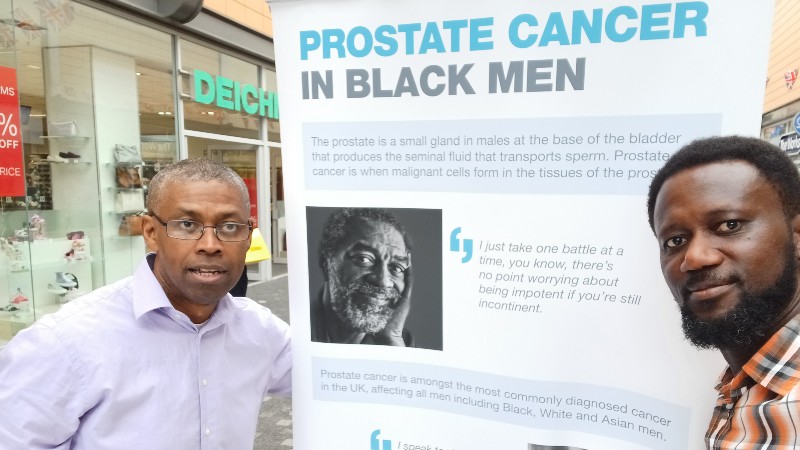Oxford Brookes academic says GP surgeries must do more to warn black men about prostate cancer

An Oxford Brookes University academic says there is an urgent need for GP surgeries in the UK to do more to warn men of African and Caribbean heritage about the dangers of prostate cancer.
Dr Obrey Alexis, a Reader in Adult Nursing at Oxford Brookes, recently completed a campaign aimed at raising awareness of the disease among black men, who are statistically more likely to develop the disease than any other ethnic group.
The campaign was linked to research conducted by Dr Alexis which revealed that awareness of the disease among black men was low, despite their increased risk of developing it.
Dr Alexis said: “We noticed from this project that black men were not given enough information on the dangers of prostate cancer. There is an urgent need for GP surgeries in the UK to have more culturally specific information on the condition which affects black men, as well as routine testing for those aged 45 and above.
“In addition, social media should be used to share this culturally specific information among black communities, while we should also be educating members of the black community to act as community advocates, so that the relevant information can be disseminated at a local level.
“Evidence says that one in four black men, in comparison with one in eight white men, are likely to be diagnosed with the condition. This campaign was designed so that we could specifically reach out to those communities, to spread awareness of prostate cancer.”
The campaign took place in Basingstoke, with approximately 320 participants recruited to attend public facing activities such as stands and workshops, and online events. Participants who took part had either already been tested for prostate cancer, or booked a free test after taking part.
In addition, participants took part in interviews with the campaign team and were asked questions about their knowledge and awareness of prostate cancer. Dr Alexis conducted the research alongside his colleagues Dr William Garbrah, Senior Lecturer in Adult Nursing, and Research Assistant Dr Sarah Mansbridge.
Dr Alexis added: “I was very pleased to see that our participants were keen to find out as much as they could about prostate cancer. Some did not realise that black men were more likely to get prostate cancer than white men. I was really moved by participants’ commitment during the project to either get tested for prostate cancer or to get their loved ones tested.
“I sincerely hope that these awareness campaigns are rolled out further afield, so that we can continue to raise awareness of this condition and how it disproportionately affects the black community UK wide. I hope to carry out further campaigns in the future."
